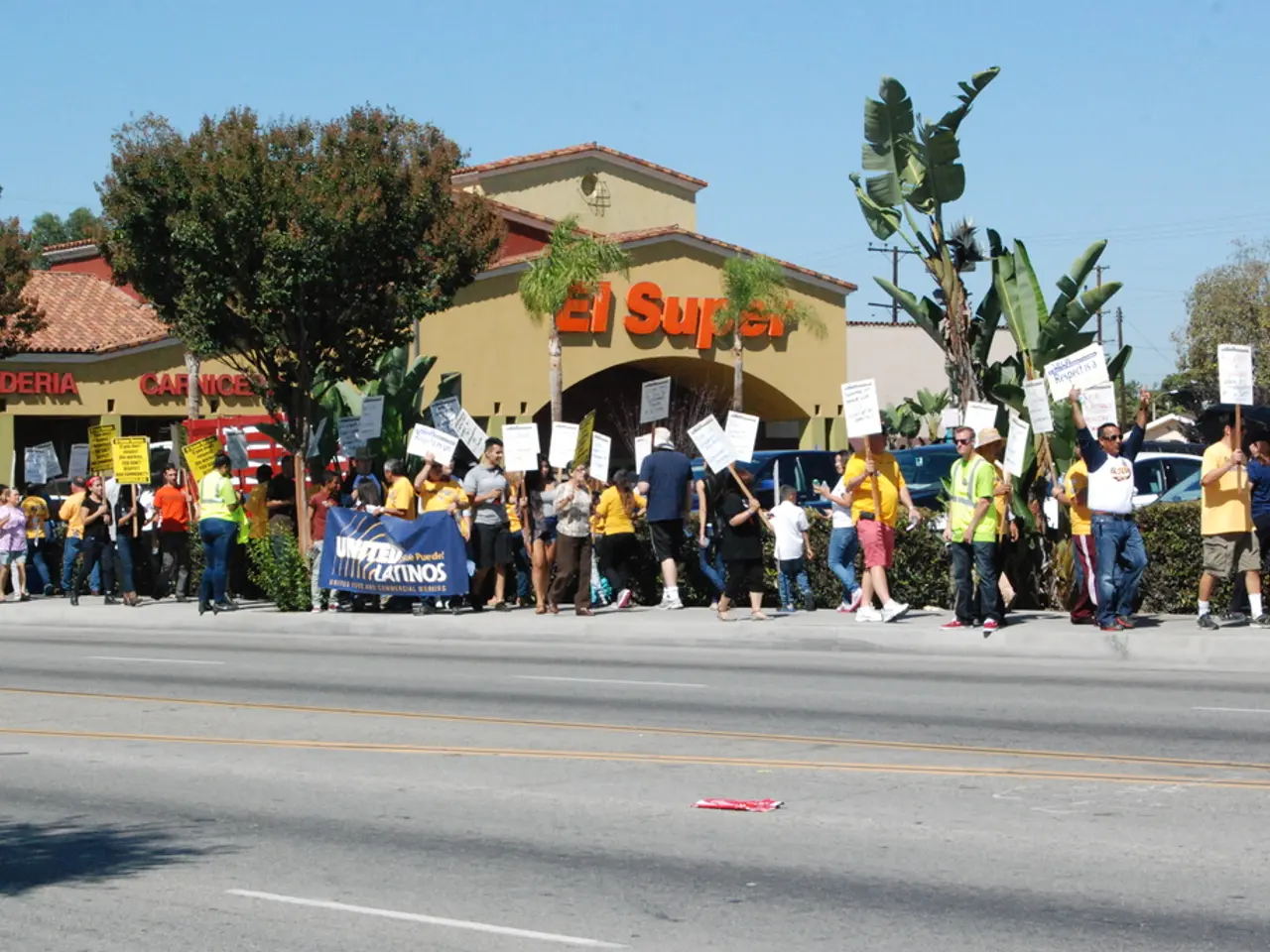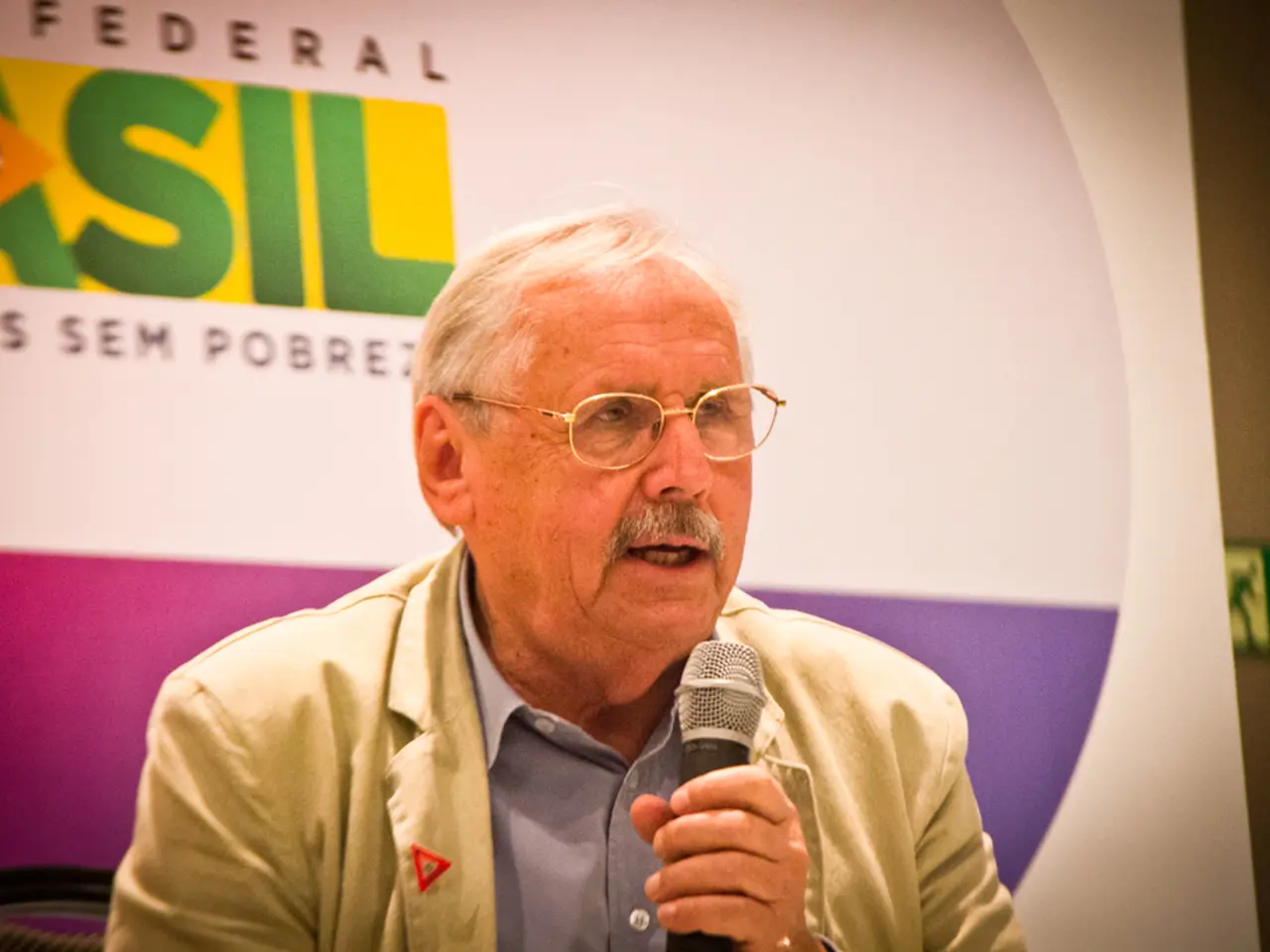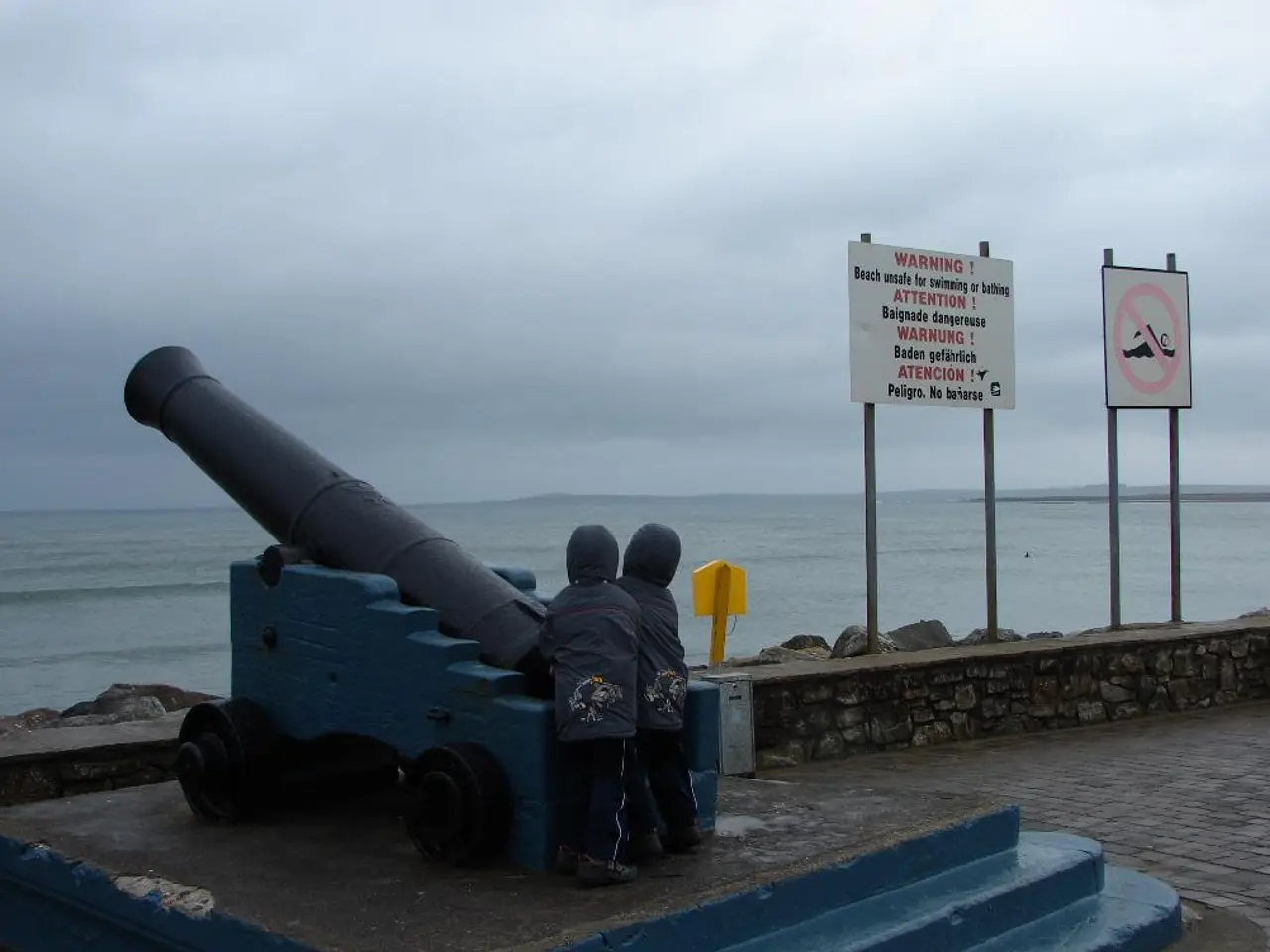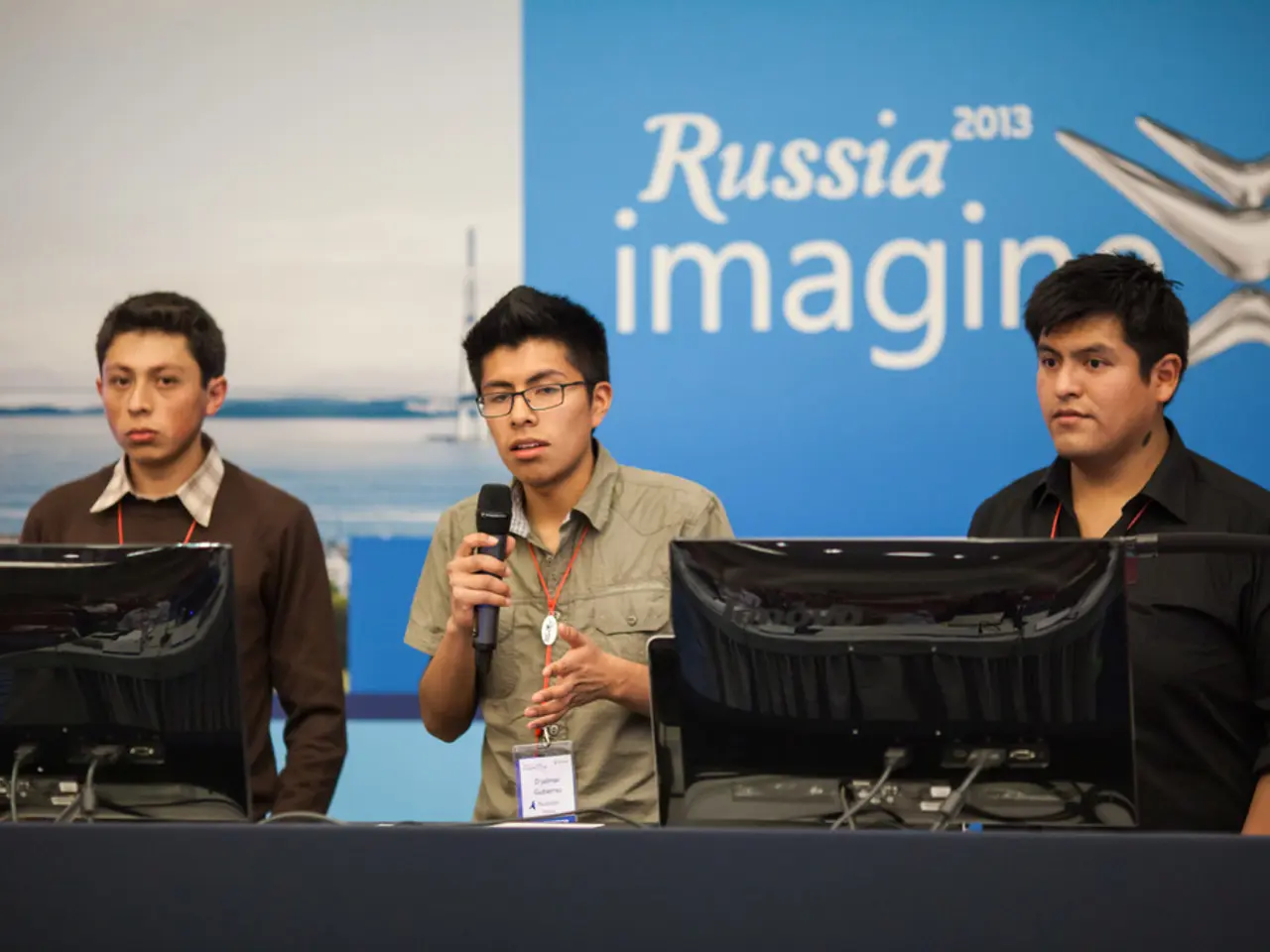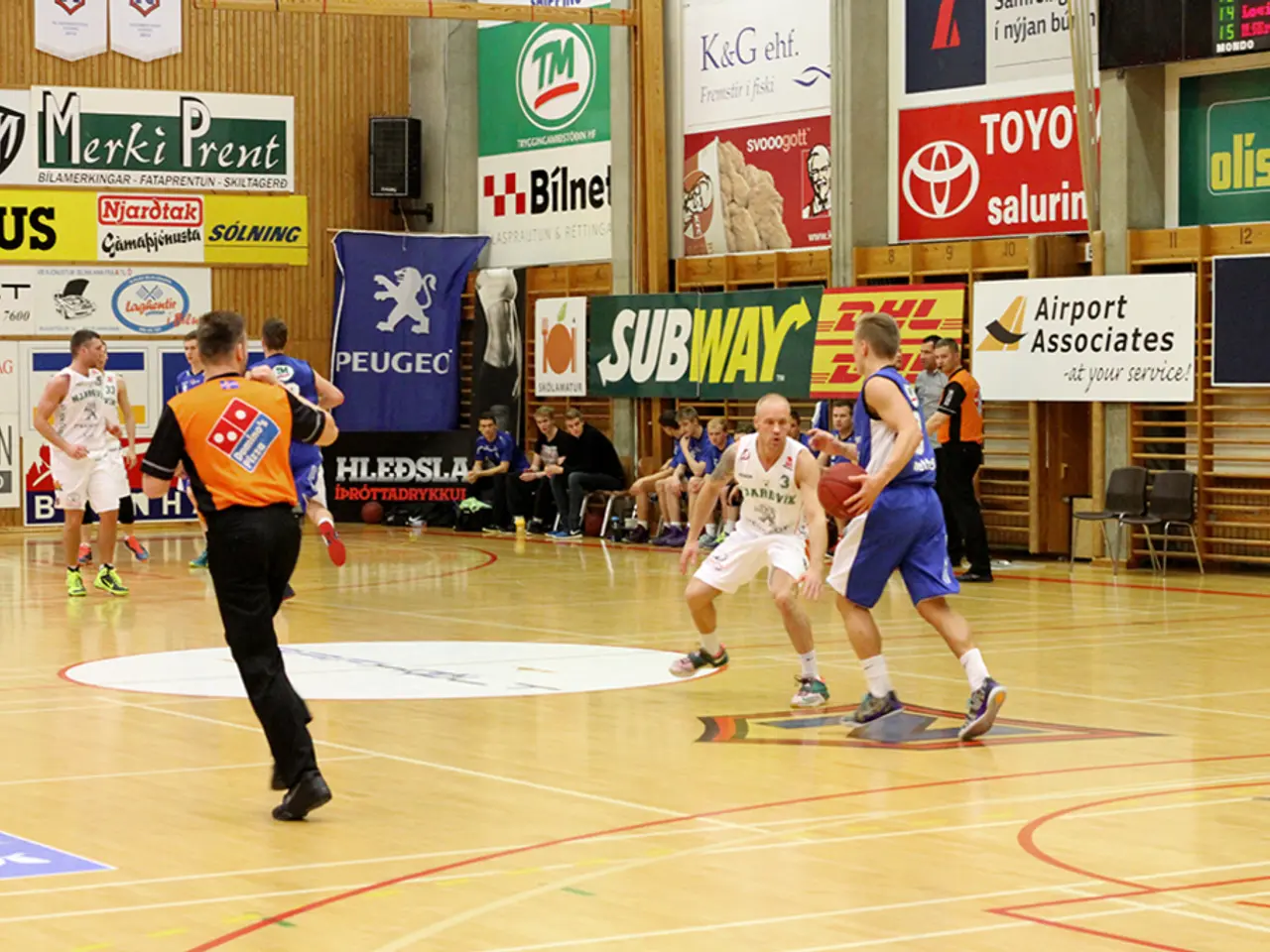Political Crisis Looms for The Socialist Group, Demanding an urgent political resolution.
The Social Democratic Party (SPD) in Germany has been grappling with significant challenges in shaping a strong, visionary program for social democratic policy. This struggle comes in the wake of historic electoral losses, with the party finishing third in the 2025 federal elections, and concerns about the leadership of newly elected SPD chairman, Lars Klingbeil.
Klingbeil's re-election as party chairman, though uncontested, was met with only 64.9% of the votes—the lowest result for an uncontested candidacy in party history. This weak showing reflects dissatisfaction among party members about Klingbeil’s leadership and the party's direction.
The SPD's difficulties in forging a strong, visionary program stem from several factors. Firstly, the party is struggling to define its vision and distinguish itself from both the conservative bloc (CDU/CSU) and the far-right Alternative for Germany (AfD). The party is in the process of analysing what caused its support to drop by about ten percent in just three years.
Secondly, there are notable internal disagreements, particularly regarding defense and foreign policy. At the recent party congress, some prominent left-wing members criticised the government’s policies on Ukraine, Russia, and the Bundeswehr. However, Klingbeil and Defense Minister Boris Pistorius managed to maintain party unity on defense spending, which required significant negotiation and compromise.
Thirdly, Klingbeil’s own authority is under scrutiny, with his ability to unite the party behind a bold, coherent program hampered by skepticism among the rank and file about both his leadership style and the broader party’s direction.
Fourthly, the SPD operates within a fragile coalition government with a conservative chancellor and only a narrow parliamentary majority, making bold policy moves challenging and requiring constant negotiation with partners.
The SPD should develop a peace policy perspective for the Middle East independent of the USA and the Netanyahu government of Israel. The party should also aim to develop the EU into a state alliance independent of the USA, Russia, and China. A new vision of non-military conflict resolution should be the starting point of all international politics.
Rules-based policy, respect for international law, and human rights should not be put up for negotiation. The party must also address the radical departure of the USA from Europe and Russia’s military resistance to all democratic movements in the former Soviet countries.
The "Manifesto" does not address rebellious population groups in countries like Belarus, Georgia, Moldova, or develop a fundamental peace policy power option for the European Union. A fundamental renewal of social democratic peace policy beyond "turning point" and "war readiness" is required.
New visions of future social, societal, and cultural policy are needed, requiring a democratic understanding of the state that sees the citizen as the driving force. Euro funds should only be invested in defense that are necessary for the defensive capability of a democratic Europe.
The undignified servility of NATO Secretary-General Mark Rutte towards the Trump-Vance gang in the White House is criticised. The SPD must see the preservation of liberal democracy as the most important contribution to the defensive capability of the country and the EU.
Despite these challenges, the SPD must rally its members and reclaim its position as a leading political force in Germany and Europe. This will require a renewed commitment to its core values, a bold and visionary program, and strong leadership that can unite the party and inspire the nation.
- The SPD's struggle in creating a strong, visionary program is evident in the current political landscape, as they grapple with defining their vision distinctly from conservative and far-right parties, and dealing with internal disagreements, particularly on defense and foreign policy.
- In light of these challenges, the SPD should strive to develop a unique peace policy perspective for the Middle East independent of the USA and Israel, and aim to establish the EU as a state alliance independent of global powers like the USA, Russia, and China.
- The party should also prioritize a renewal of its social democratic peace policy, focusing on non-military conflict resolution, rules-based policy, respect for international law, and human rights, while addressing democratic movements in appealing to rebellious population groups in countries like Belarus, Georgia, and Moldova.
